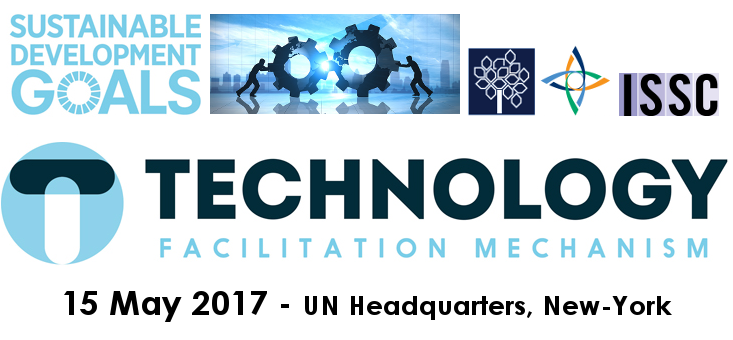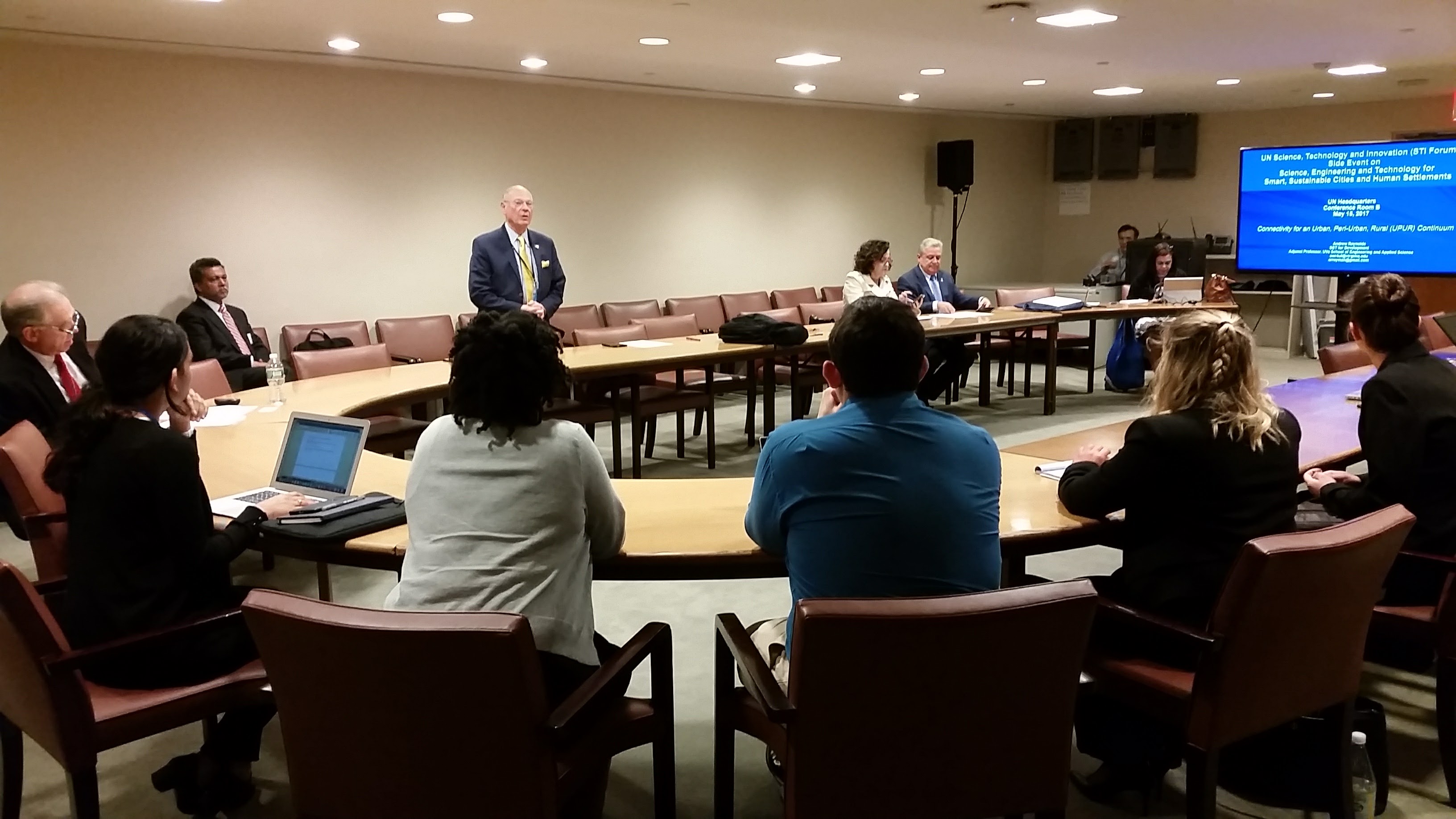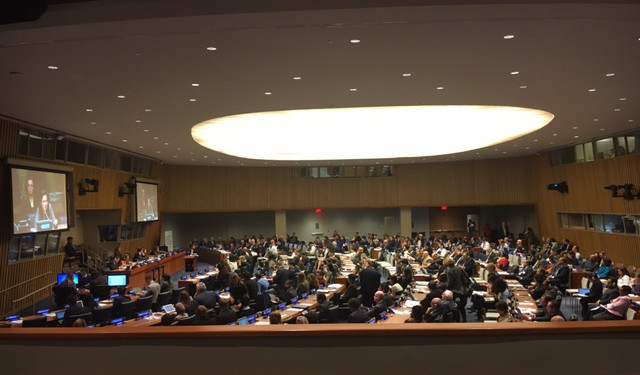

Introduction
Members of WFEO UN Relations Committee (WURC) participated in the UN second Multi Stakeholder Forum on Science, Technology and Innovation with a side event on Science, Engineering and Technology for Smart, Sustainable Cities and Human Settlements. The Event was organized by WFEO, the lead, with the International Council for Science (ICSU) and the International Social Science Council (ISSC), and was conducted on 15 May 2017 at UN Headquarters in New-York.
Theme
Global urbanization megatrend is a challenge impacting all UN Sustainable Development Goals. Urbanization is a force to advance all aspects of the transition to sustainable development – social, economic and environmental, innovation – from engineers scientists, architects, and other stakeholders. This megatrend can be leveraged to design, build, operate and maintain urban, peri-urban and rural human settlements.
The Event
WURC Chair Reginald Vachon opened saying that this was a joint (WFEO, ICSU and ISSC) Science & Technology program.
The first presentation entitled ![]() “Connectivity for an Urban, Peri-Urban, Rural Continuum” was done by Andrew Reynolds – USA State Department, Advisor to the WFEO President -.
“Connectivity for an Urban, Peri-Urban, Rural Continuum” was done by Andrew Reynolds – USA State Department, Advisor to the WFEO President -.
The Second speech was done by WeiFeng Lyu – Professor, Beihang University, China – who presented ![]() “Construction and Evaluation of a New Smart City”.
“Construction and Evaluation of a New Smart City”.
The side event was a success: the 38-capacity room had 33 attendees. The attendees ranged in age from 17 to 80 and included engineers, scientists, and architects. Several college students working in this area attended. 30 minutes was devoted to questions and discussion. Time limits prevented longer Q&D. The group was engaged. Compliments from the spectrum of ages indicated the success of the session. One person there was experienced in the problems of refugee camps. All in all, it was an interesting and lively session.
Content
Information and Communication Technologies (ICT) infrastructure is both an infrastructure system and an enabler of traditional infrastructure systems. Achievement of SDG 9 – Industry, Innovation and Infrastructure – & SDG 11 – Sustainable Cities and Communities – and related goals and targets will depend in large part on our ability to build smart cities from the ground up in the developing world and make cities in the developed world smart.
The engineering and science challenges are immense and start with defining urban system boundaries that reflect how the economic, social, natural and human – built systems actually perform and interact. Electricity is the lifeblood of smart cities but how it is generated, stored and distributed is evolving and will evolve with progress on SDG 7 – Affordable and Clean Energy –.
China is building new smart cities – doing, learning, and documenting – with the goal of defining good practices. Good practice starts with early engagement of stakeholders and stakeholder involvement in project evaluation. Good evaluation involves standards-based evaluation and China is playing a leadership role in ISO smart cities standardization activities. Standards-based evaluation will facilitate meaningful comparisons of projects and projects in time for continuous improvement.
WFEO is requesting another side event on Smart Cities in July 2017 at the UN High Level Political Forum.
Report by Eng. Reginald Vachon
For more information:
WFEO STI Forum Side Event presentation
“Connectivity for an Urban, Peri-Urban, Rural Continuum” by Andrew Reynolds
“Construction and Evaluation of a New Smart City” by WeiFeng Lyu
STI Forum webpage
International Institute for Sustainable Development (IISD) Briefing Note of the STI Forum.
Sustainable Development Goals webpage
WURC webpage
ICSU website
ISSC website
MAY
2017


